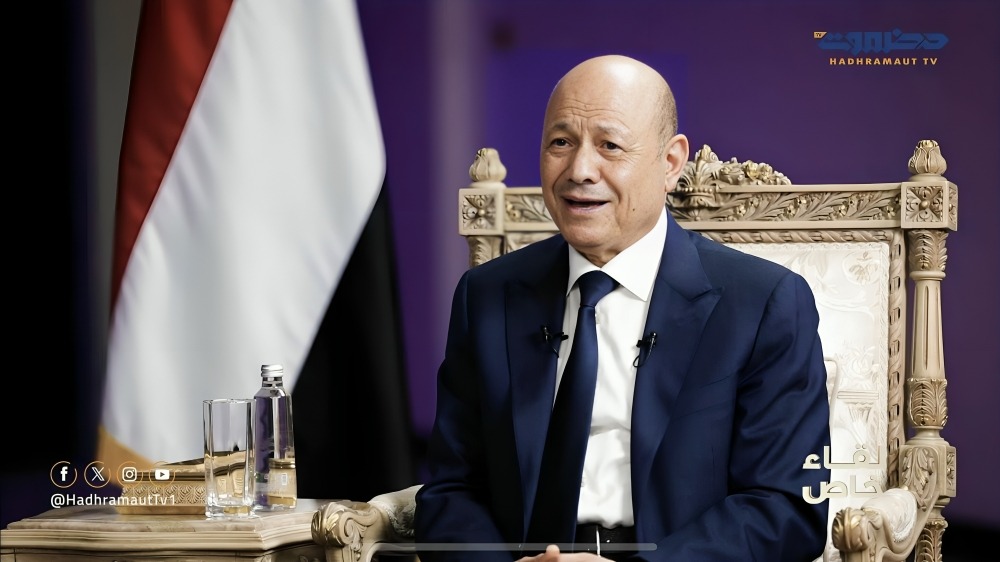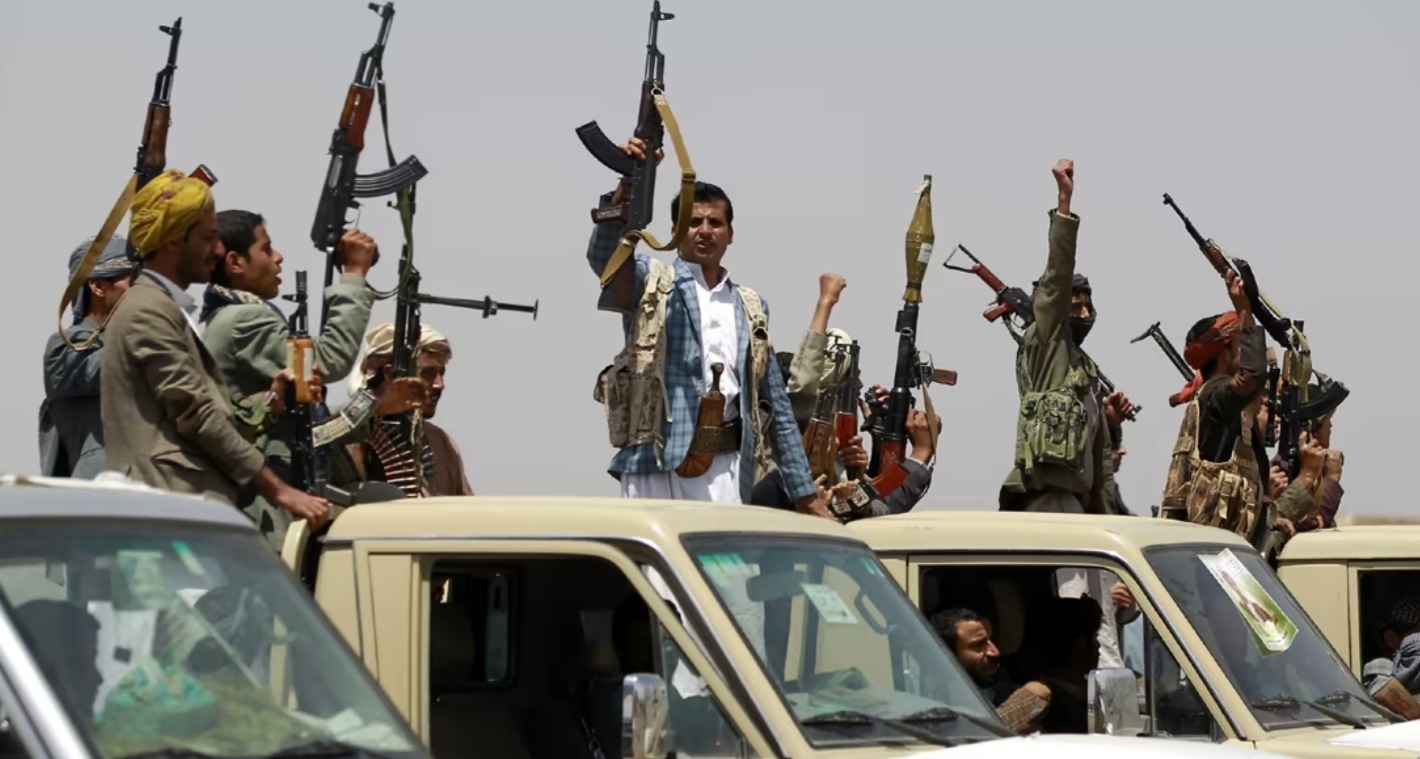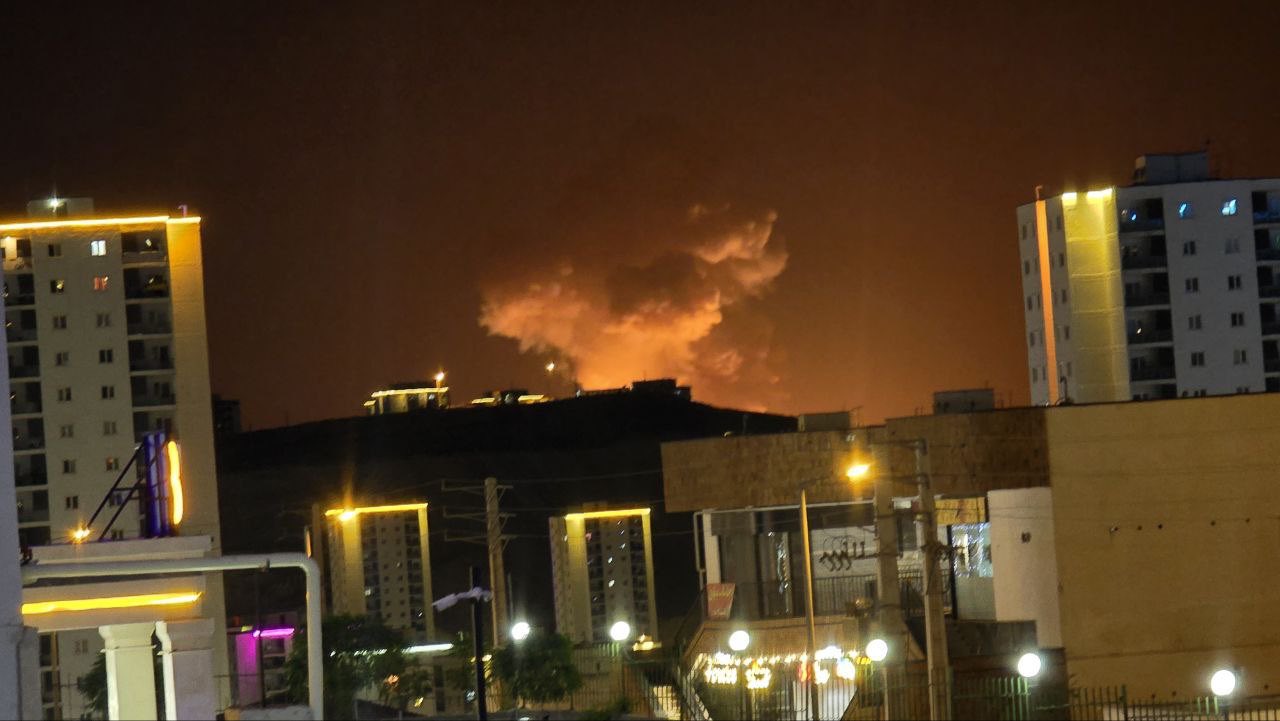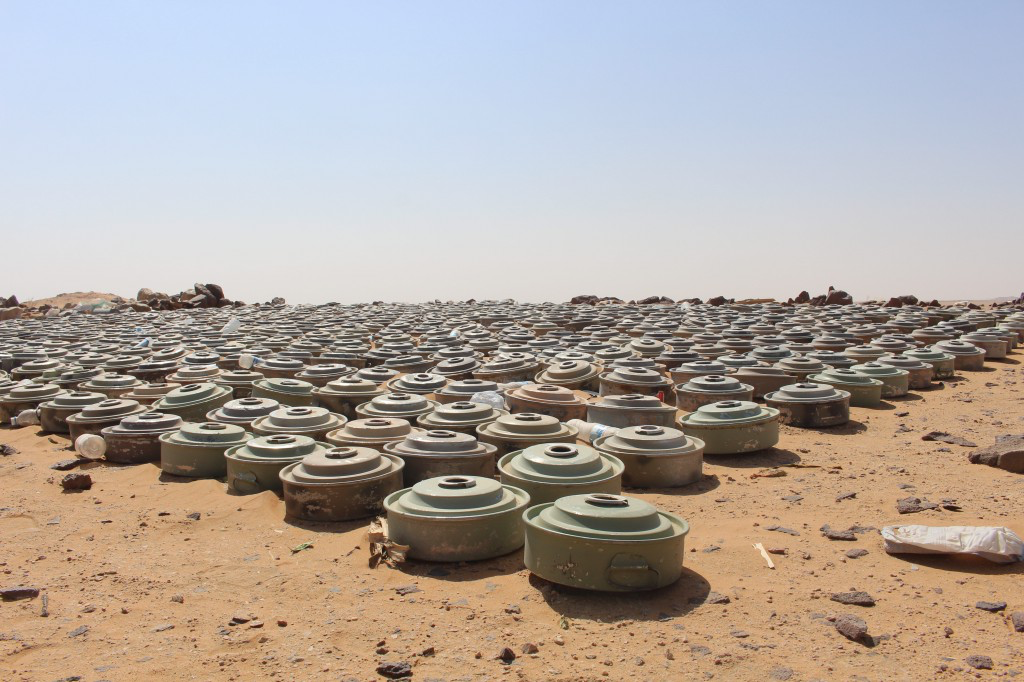
Barran Press
In a recorded interview with Hadhramaut TV & monitored by Barran Press, Yemen's Presidential Leadership Council head, Rashad al-Alimi, expressed his regret over having to lead the country in its current turbulent state.
Al-Alimi, speaking on Monday, August 5th, 2024, shortly before departing the oil-rich Hadhramaut province, acknowledged the recent economic challenges facing Yemen. He defended the Central Bank's recent decisions, stating that they were a necessary step in the government's economic strategy to counter the Houthi militia's actions against the banking system in areas under their control.
However, he also admitted that the decision to reverse these measures was made in the interest of the Yemeni people. "The decision to backtrack was made after careful consideration by the economic team, the government, and the Central Bank," Al-Alimi explained, emphasizing the importance of prioritizing the public good.
When asked about the performance of the Presidential Leadership Council, Al-Alimi expressed his dissatisfaction. "I wish I didn't have to lead the country in these circumstances," he said, adding that he was "not entirely satisfied" with the council's and the government's performance.
He acknowledged the legitimacy of the political demands of Hadhramaut's residents, assuring them that the council is committed to addressing their concerns. He also emphasized the importance of the province's role as a model for peace, security, and stability in Yemen.
Regarding Hadhramaut's share of oil revenue, Al-Alimi reaffirmed the council's commitment to the province's allocated share. He also promised additional development projects for the region once state revenues recover and peace is established.
Al-Alimi condemned attempts to exploit Hadhramaut's demands to disrupt the people's interests and undermine security and stability. He highlighted the province's historical role as a beacon of peace and stability, emphasizing that its residents are not known for obstructing their own interests.
He explained that his recent visit to Hadhramaut was intended to assess the well-being of the people, monitor the progress of development projects, and support the local authorities in fulfilling their responsibilities. He acknowledged delays in some projects, primarily due to the ongoing Houthi attacks on oil exports, which have severely impacted the country's finances, including Hadhramaut's allocated share for development projects.
Al-Alimi also announced the launch of a new 100-megawatt power plant project in Hadhramaut, funded jointly by the government and the local authorities.
In discussing the economic situation, Al-Alimi emphasized the multifaceted nature of the conflict with the Iranian-backed Houthi militia, encompassing military, economic, political, ideological, and cultural dimensions. He characterized the Houthis as an extension of a destructive project targeting the entire region.
He highlighted the existence of two opposing projects in the Arab world: one driven by Iran, aimed at destruction and chaos, and another championed by moderate nations like Saudi Arabia, the UAE, Egypt, Jordan, Morocco, and Gulf Cooperation Council members, focused on development, stability, and peace. He emphasized that the Yemeni government is part of the latter project.
Al-Alimi acknowledged the ongoing economic struggle and the need for flexibility in decision-making, stating that the council's decisions, even if requiring adjustments, are ultimately driven by the desire to prioritize the interests of the Yemeni people. He placed the blame for the devaluation of the Yemeni currency on the Houthis and Iran, accusing them of targeting oil facilities, disrupting international shipping, hindering development, and obstructing exports.
Finally, Al-Alimi reiterated the government's commitment to addressing the Southern issue as a top priority in any future peace negotiations. He noted that the issue was discussed during the National Dialogue Conference and holds a special status, making it a cornerstone of any upcoming peace talks.





